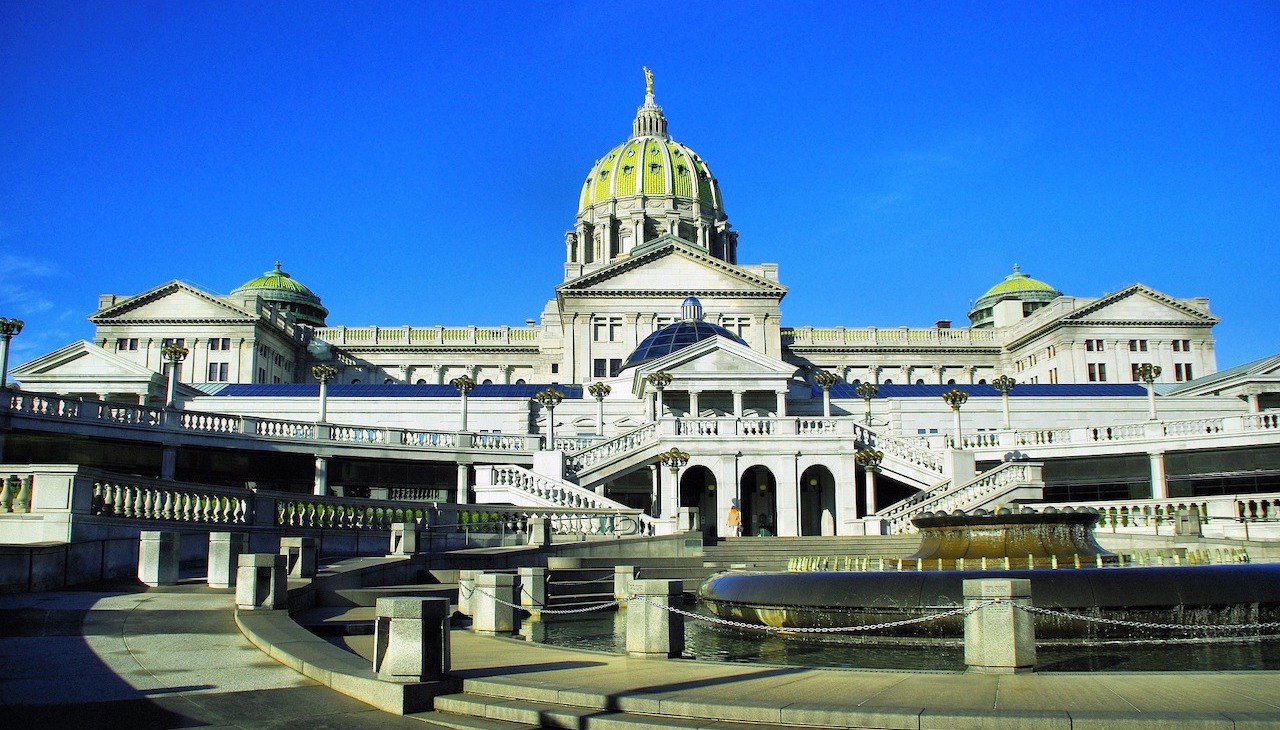
Pennsylvania’s Republican-controlled Senate votes to ban Safe Injection Sites
The bill sponsored by State Sen. Christine Tartaglione, (D-PH) has to now be approved by the state House before it goes to Governor Josh Shapiro for a signature
Following years of debating and a legal battle around the issue of safe injection sites, the Pennsylvania Senate on Monday, May 1, approved bipartisan legislation to ban them across the Commonwealth.
Bill 165 is sponsored by State Senator Christine Tartaglione (D-Philadelphia), who represents parts of Kensington — the Philly neighborhood that has become the national hotbed for drug usage exploitation and open-air drug trafficking.
“Addiction is a devastating, gut-wrenching experience. I wouldn’t wish it on my worst enemy,” Tartaglione said on the Senate floor. “But while addiction persists, and drug use continues in our nation, we cannot allow spaces for supervised substance use to permeate throughout the Commonwealth.”
She added that the bill brings Pennsylvania in line with existing federal law.
The bill would affect the state’s Controlled Substances, Drugs, Device, and Cosmetic Act to prohibit the sites that federal law already considers illegal.
An individual caught violating the proposed bill would face up to 20 years in prison, and a $500,000 fine, while organizations could face a whopping $2 million penalty.
The bill still has to go through the state House — in which Democrats hold a one-seat majority — before it can make its way to Governor Josh Shapiro, who’s expressed his opposition to the sites.
Supervised Injection Sites are certain areas and spaces where drug users are allowed to legally use under clinical supervision with the main focus being that it is meant to prevent fatal overdoses from occurring.
As most overdoses in the city take place in private homes, for advocates and several nonprofit organizations who have attempted to create their own safe injection sites, it is an alternative option that allows for safe drug usage and provides clean needles to prevent any and all diseases that can occur from a non-sterile or shared needle.
For those strongly against it, these spaces are viewed as the promoting and perpetuating of users to continue using, but without offering any real path to sobriety.
“We also have to look to the broader community: the citizens that pack a lunch and go to work in those communities where these drug hotspots are located,” Sen. Dan Laughlin, (R-Erie) said, who introduced the bill. “We have to think about the school kids that have to walk past these things and think about harm reduction for them as well."
The misconception from the public at-large is that these spaces also provide drugs to the users, which is not true. Staff only provide sterile needles and other equipment for safer drug use, and supervise them in case an overdose were to take place.
For those who overdose under the site staff’s supervision, they will revive them with oxygen or the opioid overdose-reversing drug naloxone.
RELATED CONTENT
Despite some opposition from nine Democrats who voted against, including Sen. Nikil Saval and Sen. Art Haywood, Tartaglione’s bill attracted bipartisan support — including from a few Philly Democrats — from Sen. Sharif Street who said he supported the bill during a committee meeting on Monday.
He added that he believes law enforcement costs would increase “were this group [Safehouse] allowed to move forward with a safe injection site.”
The Philadelphia-based nonprofit — Safehouse — has been the main driving force behind attempting to open a site in Philly since 2019, but as a result, they’ve gotten themselves involved in a lengthy legal battle in the time since.
Former U.S. Attorney Bill McSwain sued in federal court to keep the site from opening and the U.S. District Court judge was in favor of the nonprofit, but they’d later lose on appeal when the 3rd U.S. Circuit Court of Appeals in Philly rejected the idea.
The court concluded the operation would violate a 1980s-era drug law aimed at "crackhouses,” and the U.S. Supreme Court declined to take on the case.
In the nearly two-year since, the Justice Department has said that they are "evaluating" sites as well as talking to regulators about "appropriate guardrails,” and both Safehouse and the federal government have been engaged in settlement negotiations.
Had Pennsylvania been successful in being allowed to set up sites across the state, they would have joined neighboring state, New York, as the only other state to currently have and allow safe injection sites.
Two total sites opened in 2022 while Rhode Island recently legalized them, but have yet to open one.
Governors of California and Vermont, Gavin Newsom and Phil Scott respectively, each vetoed similar safe injection sites bill last Summer.











LEAVE A COMMENT:
Join the discussion! Leave a comment.